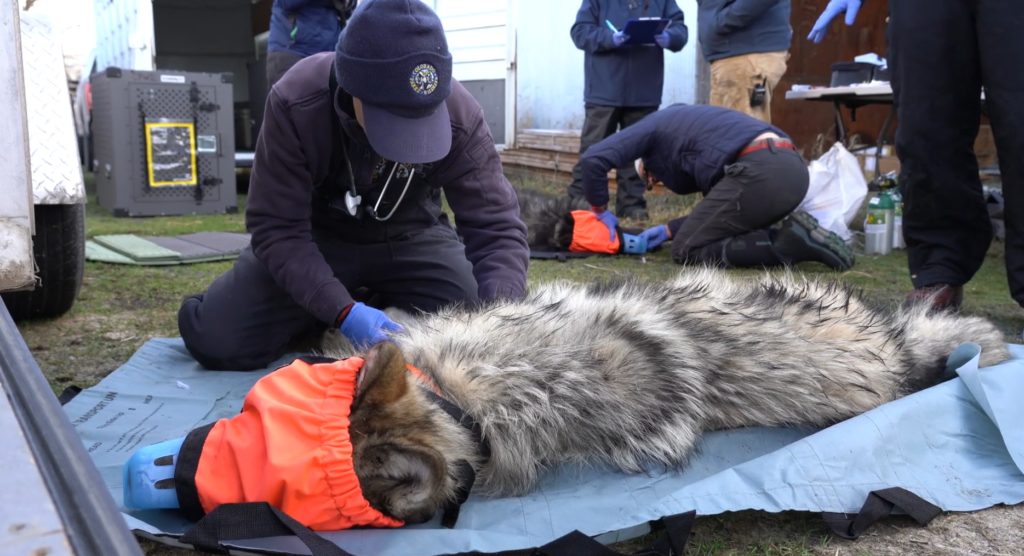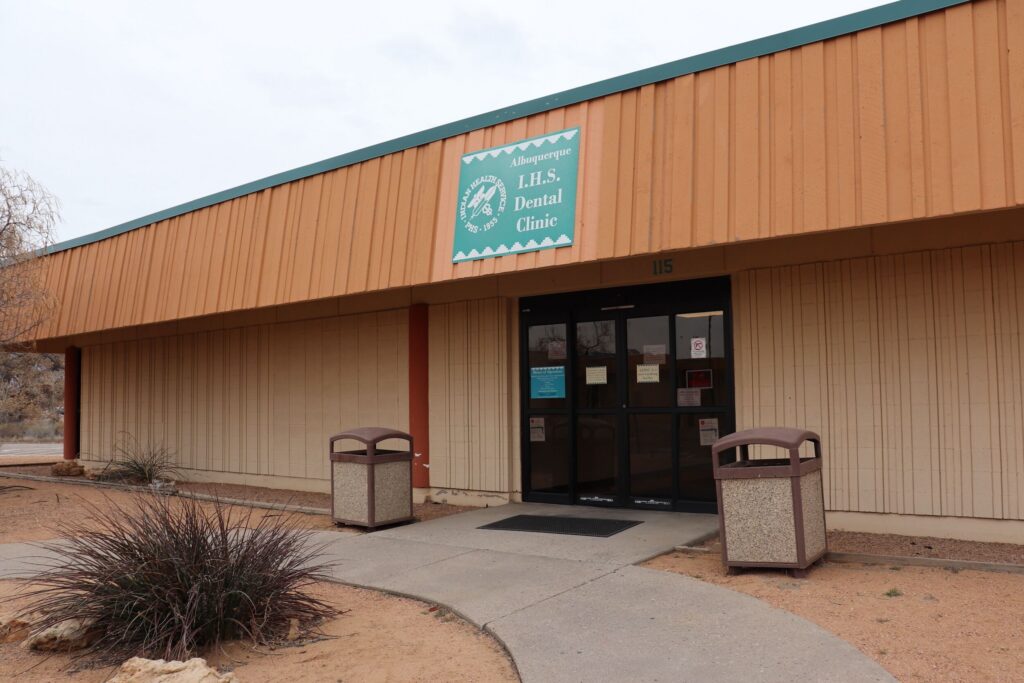Colorado Senate President James Rashad Coleman: ‘I was conditioned for service’
One can clearly hear the street preacher in James Rashad Coleman’s booming voice during roll calls in the Colorado General Assembly.
“Let’s Do This!”
That’s his trademark reply.
That also comes from his father, a street preacher born on a Native American reservation in Oklahoma who wasn’t present in Coleman’s life until he turned 11.
Coleman was the youngest of nine children. During his early years, he spent time in Nevada and reconnected with his dad when they moved back to Park Hill.
And His dad’s idea of having a good time? It was showing up at soup kitchens, nursing homes, and food pantries. Coleman followed along to spend time with him. That conditioning, he said, gave him a different experience of what matters.
It’s part of what drove his life in service, including his decision to run for office, starting with representing northeast Denver in the state House in 2017.
“I was conditioned for service,” Coleman told Colorado Politics.
He also believes his community has called him to serve.
Coleman, a Denver Democrat, has spent the last two legislative sessions as President Pro Tempore of the state Senate.
On Jan. 8, he moves into the top spot, as the Senate’s 55th top leader and the only the second Black Senate President. He follows in the footsteps of former Sen. Peter Groff, who held that position for about 18 months before heading off to join the Obama administration in 2009.
Both hail from Senate District 33, a long, thin, jagged rectangle that on its west side includes Five Points and Curtis Park and on its far east side Green Valley Ranch, Montbello and the airport, with Park Hill, where Coleman was born and grew up, in the middle.
Coleman begins his second and final term in the Senate in January after winning a landslide election with more than 81% of the vote. He has the potential to do something that hasn’t happened in more than 30 years — to serve more than three years as president. The last person to accomplish that feat was Sen. Tom Norton, who served from 1993 to 1998.
‘No, it’s perfect — it’s exactly what you need’
The path hasn’t always been easy.
Coleman points to the coaches in his life — such as the coaches he played football with at the local rec center and the teachers. Include in that list the churches he grew up in. Those days were not without conflict. Coleman said he was in and out of trouble, picking fights with bullies that eventually got him expelled from Smiley Middle School.
He had the option of attending a juvenile justice program or a private school, but the latter was out of reach for his family. Instead, he attended Union Baptist Church Excel Institute, where he saw his first African American principal.
“Everybody was like my mama,” Coleman said.
At the end of the first day of school, he begged his mom to get him out. She said, “No, it’s perfect.”
“It’s exactly what you need,” she said.
It’s where he got grounded in Black history, which was taught daily. It’s also where he had his first “Obama moment,” the day Denver Mayor Wellington Webb walked into his classroom.
“I didn’t know we could be leaders in elected office,” Coleman said, the sense of wonder palpable in his voice even years later.
Once he made it through school, first in Denver and then in Aurora, he returned to Oklahoma and Oral Roberts University, where he earned a degree in psychology with a minor in business administration.
He returned to Denver and his girlfriend, Shayna, whom he had been with since they were both in 8th grade. They’ve been together for 23 years, including 14 years in marriage, with twins James Junior and Naomi, who turned 14 last month.
Coleman began serving the community in the ways it had affected him, such as through nonprofit work and creating opportunities for kids. He started a sports scholarship organization, one that borrowed from his own experience playing sports and kept him out of trouble.
He moved on to create FaithBridge, a nonprofit designed to mobilize the faith community to improve K-12 education and to support advocates for education.
“It was a way for me to really reach out and engage the community directly, in addition to the work that we get a chance to do here at the state capitol,” he said.
Sen. Gloria Tanner’s influence
Then, one day, a voice called out to him, telling him it was time to serve his community and state.
The late Sen. Gloria Tanner, the first African American woman to serve in the state Senate, lived at 22nd and Monaco. Coleman’s grandmother lived at 38th & Monaco.
Coleman believes Tanner, who died in 2022, saw things she didn’t see in himself, a common thread in people’s discussions of Tanner.
“She’s the kind of person that you would call if you needed advice and you needed perspective, but she was also the person that would call you and tell you, ‘I need you to come over to the house, have some lemonade, have some tea.’”
That meant a serious conversation was going to take place.
Like Coleman, Groff was influenced by Tanner, whom he called the foundation of every elected person from Allegra “Happy” Haynes to former Sen. Ben Clarke. She could see things that maybe people didn’t see at that time in themselves. She was always open to conversations, always checking in to see how things were going, Coleman said.
“Someone always there for you, whether you asked her to be or not,” he said.
Coleman still hears Tanner’s voice, carrying on the traditions and policies she started. At a time “when people are concerned about budget and how we will afford to do things, she’s still thinking about people who don’t have and people who are on fixed incomes and people who are retired or maybe can’t work.”
“And so that’s who I think of. I think of a champion,” Coleman said.
Coleman said Tanner was not the kind of person you said “no” to. She’d say, “We need you,” and when the community called, you answered, Coleman said.
Her seal of approval, which has touched those in city council and the state Capitol, “is more about your viability for the community,” Coleman explained. For her, it was, “Are you from the community? Are you somebody that’s invested in the community? Did you just show up? What investments have you made?”
She deeply cared about her community and knew that would permeate across the whole state.
“Everyone goes to Gloria’s house,” he said with a smile.
‘Be transparent, do the work’
As he enters the 2025 session, Coleman said what he loves about the job is governance and policy.
“Obviously, we’re here to pass good bills and implement community work,” he said.
But Coleman said he also believes in the institution. It’s not just the elected officials but also the lobbyists, the partisan and nonpartisan staff — and, yes, the Capitol reporters, too.
“We can do really great work if we know how to communicate with one another, be transparent, do the work.”
He acknowledged that lawmakers won’t always agree, but they can avoid being disagreeable.
He learned that value in the House and pointed to former Chief Clerk Marilyn Eddins, from whom he learned, he said, to cherish, honor, and appreciate his position in the House.
He recalled seeing her eyes from the front, watching him to see if he was talking when he should have been paying attention.
When she retired several years ago, Coleman said she told him to keep the place honorable and dignified.
That’s also a big part of why he ran for Senate President — to protect the institution, he said.
“I don’t intend to go anywhere … and I believe we have other leaders who will continue that on when I’m not here,” he said.
A friendship with Cleave Simpson
He also looks across the aisle at the friendships he’s made with his Republican colleagues. One that stands out is Sen. Cleave Simpson of Alamosa.
Coleman once commented to Simpson that he always talks about water, water, water. Simpson is the manager of the Rio Grande Conservation District. Coleman wanted to talk about criminal justice, healthcare, affordable housing, and education. As it turned out, Simpson wanted to talk about those things, too.
Coleman had never been to the San Luis Valley or the Great Sand Dunes National Park, so he packed up the car with Shayna and the kids, and off they went to Alamosa and the Simpson farm, some 900 acres, which had been in the family for four generations.
Coleman learned about water, its importance to agriculture, how water feeds the economy, and how it pays for healthcare and criminal justice and the things Coleman cares most about.
That, and a trip to “Peltonia” — the districts of Sens. Byron Pelton and his cousin, Rod Pelton — helped him learn how to interact and engage with colleagues from across the aisle, to know their families and to understand where they’re coming from.
That, in turn, led to Simpson and Coleman sponsoring a bill in 2023 to raise the age for child prosecution. Simpson was the only Senate Republican to vote for it and he stood with Coleman for two days of five-hour filibusters on the bill.
“I showed him how much I cared about him,” Coleman said, and he did the same.
Simpson saw in the bill the kids in Alamosa sitting in a jail cell at 10 years old when they should be in an alternative program.
“I’m forever in his debt. He’s one of my best friends,” Coleman said.
The challenges ahead
For his first year in the president’s chair, Coleman says he’ll focus on protecting people who need access to healthcare, working on affordability, and investing in education.
He pointed to the efforts to pay off the debt to K-12 in the 2024-25 budget and revising the school finance formula, which he calls critical work. In addition to that, “We want to make sure that we are creating protections for the things we’ve completed,” such as immigration, LGBTQ rights, diversity and civil rights, and the environment.
He’ll also need to deal with the budget, which has a $1 billion hole for 2025-26. That will require partnerships with the Joint Budget Committee and the governor and it will mean strategic and targeted cuts without affecting critical need areas, such as healthcare and education, he said.
He speaks in the language of the kitchen table.
“We all have private budgets for our own lives, and if you’re not able to make more money, you have to look at your budget and figure out where you can cut costs,” he said.
At the Capitol, that means examining programs to ensure their effectiveness, determining where to reallocate dollars, and determining how to address specific needs, he said.
That could also include a deep dive into reducing recidivism and acknowledging victims of crime who need assistance, he added.
Coleman pointed to the costs of incarceration, some $50,000 a year, more than what teachers make. For him, it raises the question of how to focus on programs that prepare people when they’re coming out of prison and where savings can be had within the state corrections department.
What keeps Coleman grounded is family and community. When he first ran for office, his children were just six years old. He first asked Shayna and then the kids for permission. They might not have understood what he was asking, but today, they go to town halls and knock on doors for him.
“My family is really a big motivator as to why I do the work. None of us does this work alone.”
There’s one other person who’s watched Coleman as he moved through the House and to the Senate is Groff.
Groff told Colorado Politics he’s talked to Coleman quite a bit over the last several years.
“I’m probably more excited about him taking the gavel than I was for myself,” he quipped.
Groff has passed on advice to Coleman as he enters this next step, advice he said he’ll keep to the two of them. But he believes Coleman is “a truly talented young man who wants to do the right thing.” He will be an outstanding president, he said.











